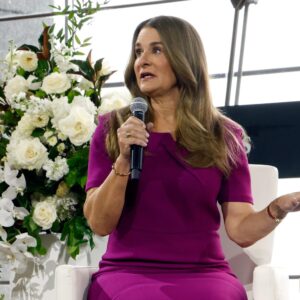In 2021, Shirley Nunn, 67, and her son Steven, 50, were found dead in their home in Middlesborough, England. Now, a new investigation reveals heartbreaking details surrounding the tragedy — a tragedy that could have been prevented.
In October 2021, 67-year-old Shirley Nunn received a devastating diagnosis.
Doctors told her that she had terminal cancer, and Shirley realized it was only a matter of time before she would pass away. While this news was heartbreaking, what seemed to weigh even heavier on her mind was the thought of how her son, Steven, would cope once she was gone.
Shirley had been a full-time caregiver for Steven ever since he suffered a tragic accident at the age of 11. The accident left him in a coma and caused severe brain damage. Despite numerous surgeries to save his life and help him recover, Steven’s injuries had lasting effects, leaving him unable to live independently.
Ste at the boro match with his carer he loved it xxx
Posted by Shirley Nunn on Wednesday, December 23, 2015
He was diagnosed with cerebral palsy and epilepsy, and struggled with learning difficulties, mobility issues, and emotional control.
As a result, Shirley took on the role of his full-time caregiver. With the passing of her husband from cancer, she had been Steven’s primary support system, with assistance from adult social care that had been involved in his care since 2005.
Stage three lung cancer
As previously mentioned, Shirley was diagnosed with stage three lung cancer in 2021, and shortly after, she received a terminal diagnosis when the disease spread to her brain, spine, and pelvis.
Despite this devastating diagnosis, Shirley continued to care for her beloved son. The hospital and Shirley herself made arrangements for her to pass away at home, but she still wanted to do everything she could to help Steven. However, it wasn’t easy for her, and aa Domestic Homicide Review revealed that Ms. Nunn had been struggling with depression with thoughts of taking her own life.
The report highlighted how the ”loving and caring” Ms. Nunn was more worried about how her son would cope without her than about her own deteriorating health.
”She broke down in tears twice, reflecting on how her condition was worsening,” it revealed.
Clothes fit lovely thanks chantelle and liam xx
Posted by Shirley Nunn on Monday, December 28, 2015
In October 2021, Ms. Nunn was hospitalized again for issues related to her cancer.
The staff were informed that palliative care was being arranged for her at home and that she ”preferred to die at home.”
Tragically, two days after being discharged, police were called to her home by her sister, where both Shirley and Steven were found dead — exactly two years to the day after her husband Paul also passed away from cancer.
The investigation into the tragic deaths revealed that authorities missed key opportunities to support Shirley Nunn, and had she received the right help, this heartbreak could have been avoided. It was clear that in the weeks leading up to her death, Shirley was struggling emotionally and was incredibly vulnerable.
”Always prioritized his needs”
Because she didn’t get the support she desperately needed, it seemed like she felt forced to take matters into her own hands when it came to her son’s future.
”The severity of the cancer should have ensured attention was focused on [Ms. Nunn’s] psychological and care situation at the earliest opportunity but urgency of this was not fully understood by professionals. Her mental health should have been focused on as much as her physical health,” the report concluded.
”[Ms. Nunn] had cared for and loved her son throughout his life and without question had always prioritized his needs. We can only assume she felt there was no other option or alternative for [Steven’s] ongoing care and support needs and took what must have been the very difficult decision which resulted in their deaths.”
This tragic story raises uncomfortable but necessary questions about how we support those facing unimaginable challenges.
Shirley Nunn’s unwavering love for her son led to a heartbreaking decision, but was it the system’s failure that pushed her to this point? Should we be doing more to provide mental health support for caregivers?
How much responsibility do we, as a society, bear in ensuring people like Shirley don’t feel like they have no other option? Share your thoughts — could this tragedy have been prevented with the right care, or is there more we can do to help families in need?





